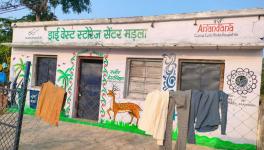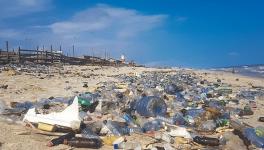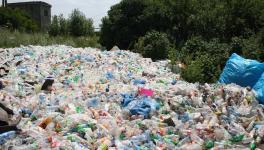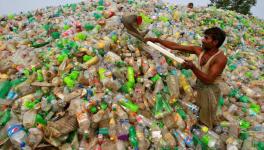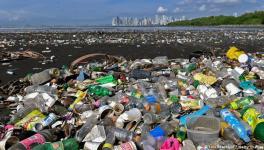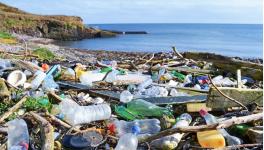Plastic Life Span: Report Flags Grave Health Risks for People in Vicinity of Panipat Refinery
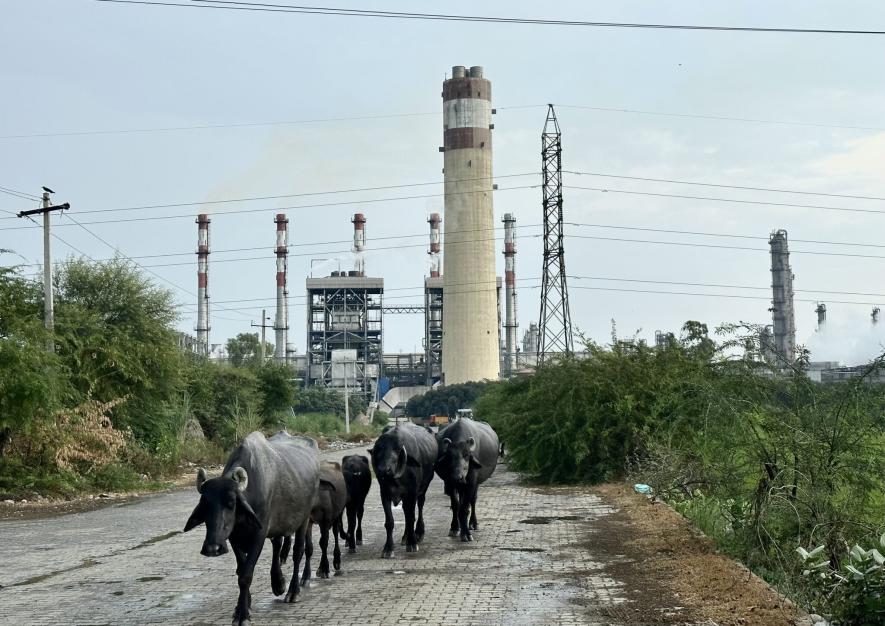
Naphtha cracker plant of Panipat Refinery near Bal Jattan Village. (Image credit: CFA)
New Delhi: People living in villages close to the Panipat Refinery face serious health hazards due to harmful and potentially harmful chemicals and substances released during various stages of plastic life span, such as extraction of raw material, refinement and cracking, processing, manufacturing, distribution and consumption, says a new report.
The report, Endangering Health, Ending Lives? brought out by the Centre for Financial Accountability (CFA), has taken the Panipat Petrochemical Industrial Hub in Haryana, one of the largest integrated refineries and petrochemical hubs in the country, as a case study. It surveyed the health impacts on communities living in six villages in the plant’s vicinity.
“The findings of the report are especially significant against the backdrop of the Indian Oil Corporation’s approval for the expansion of the refinery and the Bharatiya Janata Party-led state government’s nod to the acquisition of 349 acres of panchayat land in Haryana,” says the report.
According to the report, over half (22) of the 40 categories of chemicals or substances released during the life span of plastics ‒ typically derived from petrochemicals, a product of oil/gas/coal ‒ in varying quantities are carcinogenic.
In addition to cancer, the health risks due to exposure to chemicals or substances include respiratory diseases, genetic mutations, cardiovascular diseases, organ damage, pregnancy complications, among others.
During its study, the CFA team found many residents reporting health issues, such as persistent skin allergies, recurring diarrhoea, pains and aches, dental and developmental issues, difficult pregnancies or miscarriages, a heightened incidence of epilepsy, tuberculosis, and asthma, premature greying of hair (even among children), and “cancer becoming alarmingly common”.
“Families in the affected villages incur substantial medical expenses, struggling to cope with health problems stemming from refinery pollution,” a resident told the team.
The surveyors also noticed oil films on ponds, soot deposits on structures, with several farmers also reporting a drop in crop yield due to emissions and contamination from the refinery.
With more land acquisition plans underway, several residents also complained of “unfulfilled” promises made earlier by the Panipat Refinery, such as maintenance of green belts and employment opportunities.
“The silence of local leaders, silenced through contract works, echoes the community’s despair. The promise of a better life has been shattered, leaving residents disillusioned and disheartened,” a resident said.
The report, taking leads from their survey in Panipat, flagged the harmful impact of plastic life span on human beings and the environment, especially on fertility.
“Based on the evidence in Panipat and several other petrochemical producing regions in India, it is not difficult to conclude that plastics fuel all forms of infertility – of people, animals, and the soil,” Swathi Seshadri, Team Lead (Oil and Gas), CFA, said in the report.
The report comes during an Intergovernmental Negotiating Committee meeting in Ottawa this month (April 2024) of 175 countries for the 4th round of talks on international legally binding instrument on plastic pollution, including in marine environment.
It notes the decline in public health in India, with greater dependence on expensive private health delivery systems that lead to exclusion of the poor or adds a heavy financial burden on them.
In terms of budget allocations to the Ministry of Health and Family Welfare, its share has seen an overall decrease in expenditure from 2.16% in 2019-20 to 1.9% in 2024-25. The health budget for 2024-25, including the Department of Health Research, constitutes 0.27% of the projected GDP for the same fiscal year. This is less than the 2023-24 budget share (0.3%) of the total GDP, the report noted.
“We hope that policymakers nationally and internationally can appreciate the unjust burden put on the people affected by the petrochemical and plastics industry. We hope that remediation and reparation mechanisms are put in place to address the serious health impacts and concerns arising from the activities of this extremely toxic industry” Seshadri added.
Get the latest reports & analysis with people's perspective on Protests, movements & deep analytical videos, discussions of the current affairs in your Telegram app. Subscribe to NewsClick's Telegram channel & get Real-Time updates on stories, as they get published on our website.










